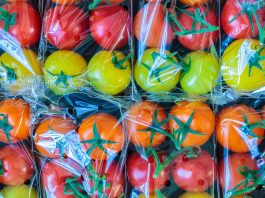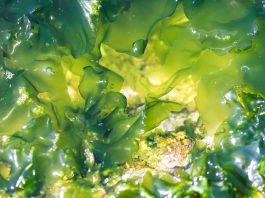German researchers are using vegetable proteins from agricultural waste to replace petroleum-based raw materials in industrial applications.
Research teams at the Fraunhofer Institute for Process Engineering and Packaging IVV are collaborating to develop a method of using the promising technofunctional properties of vegetable proteins for industrial applications. The aim of the TeFuProt project is to create an easy way to transition from petroleum and make more use of renewable raw materials.
Although proteins from vegetable sources already play a key role in the chemical industry, as a binding agent or adhesive, their use has been in decline since the boom of the petrochemical industry. The partners involved in the TeFuProt project are aiming to change this and obtain proteins for industrial applications from agricultural waste products. The aim of this bioeconomy approach is to counteract the scarcity and long-term price increase in fossil raw materials and use renewal raw materials as an alternative to petroleum.
The processing of agricultural raw materials such as rapeseed results in large quantities of protein. These proteins are a by-product of rapeseed oil recovery, a process that presses oil out of the seed. Protein-containing by-products, so-called rapeseed meal, are left behind. Andreas Fetzer, scientist at the Fraunhofer Institute for Process Engineering and Packaging IVV explains: “Up until now, this residue has been used mainly as a foodstuff in livestock farming. But this usage is limited because of the bitter substances contained.”
Due to their functional properties, such as the ability to form foams, gels and films, and their ability to retain water, the protein fractions of the rapeseed press-cake have a huge potential for a broad range of technical applications. They are ideal as additives for paints, varnishes, adhesives, lubricants, building materials, detergents, and polymers. Fetzer adds: “The vegetable proteins are opening the door to the development of novel, sustainable, bio-based products with improved properties.”
Isolating the proteins
Researchers at the Fraunhofer Institute for Process Engineering and Packaging IVV were tasked with investigating how to isolate the proteins from the rapeseed meal and rapeseed press-cake. They were also in charge of the protein modification and pre-formulation in such a way that they can be delivered to the development partners for tests either in the form of dried powders or in liquid solution. The technofunctional properties such as solubility, foaming and emulsifying behaviour, as well as film forming properties were also analysed.
Fetzer and his colleagues successfully recovered four types of protein through four distinctly different processes. He added: “We de-oil, grind, and dissolve the rapeseed press-cake in water. The mixture is then centrifuged to separate the solids from the liquids. After that, we refine the aqueous extract with the dissolved proteins.” The protein isolates recovered often have a protein content of over 90%.
The team aim to optimise the preparations and get them ready for the market. The long-term aim of the partners is to replace petrochemical-based products with bio-based ones on a large scale and create added value through the use of vegetable proteins.









